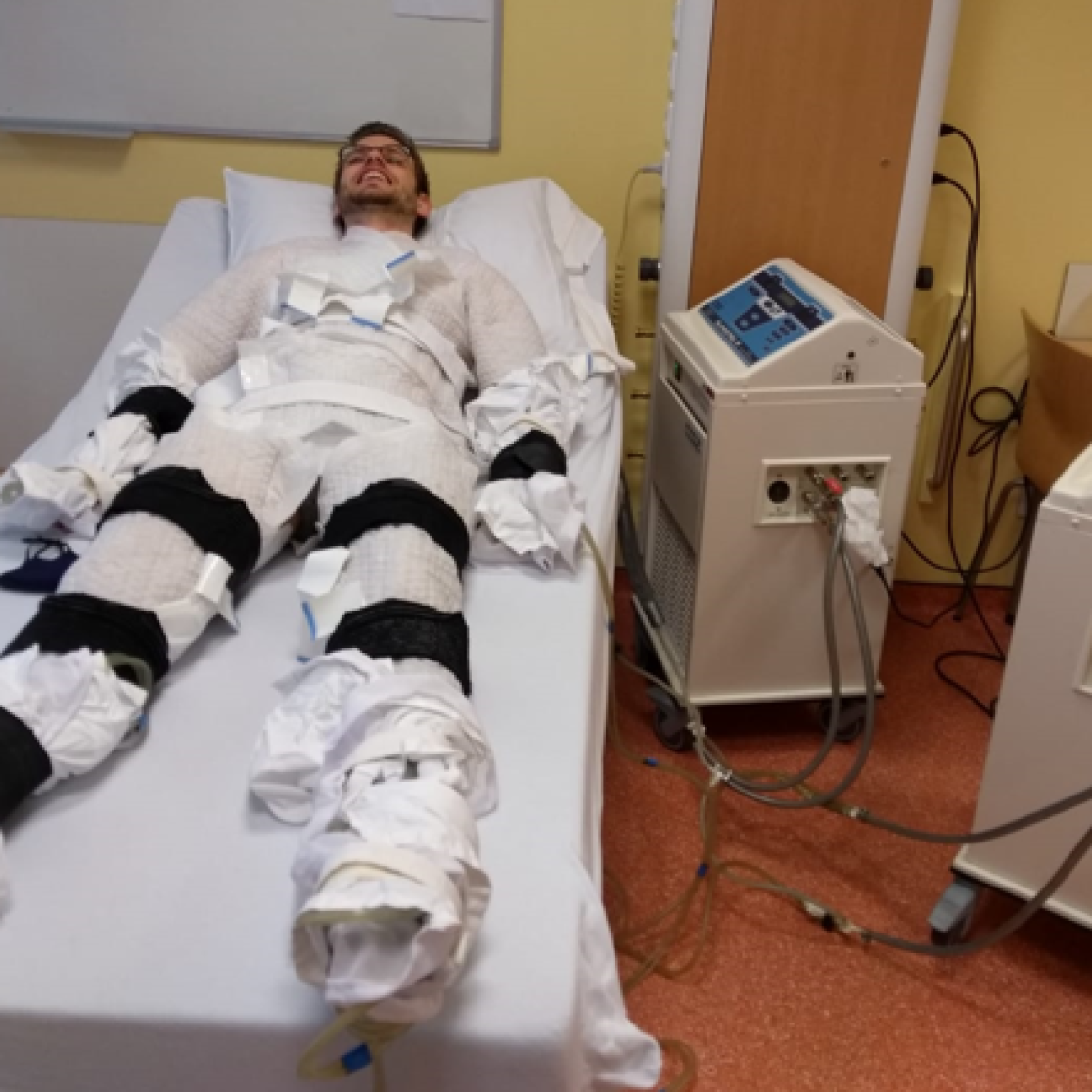Cold shivers?
Due to the Western lifestyle with a high fat diet combined with little exercise, more and more people in the Netherlands are overweight or even obese. This causes an increased risk of type II diabetes. What can be done about this besides a healthier lifestyle? The answer comes from an unexpected source: shivering from the cold! Apart from the fact that this mechanism ensures that your body stays a bit warm, it also appears to improve sugar metabolism in type II diabetes patients. PhD student Sten van Beek investigated how this works. On November the 23rd, he will defend his PhD research at Maastricht University.
Possible explanations
Back in 2015, it was shown that exposure to mild cold led to improved sugar metabolism in type II diabetes patients. However, it was not known at the time exactly how this worked. Therefore, Sten van Beek conducted research within Maastricht University by testing two possible mechanisms. The first is activation of certain receptors that are also activated during the cold. These receptors, important in the fight-or-flight response as well, are the so-called adrenergic receptors. Activation of the receptors improved sugar uptake by the muscle of obese mice. This activation was caused by addition of a particular drug to the mice's drinking water that activates this receptor. After the experiments on mice, Sten also administered the drug to healthy subjects where the same effect was seen.
So this mechanism may be partly responsible for improving sugar metabolism. Can this drug be marketed then? The answer, unfortunately, is no. Side effects such as hand tremors and muscle pain caused a lot of burden in participants. However, the pharmaceutical industry could develop similar medications on this basis.
Cold shivers
A second possible mechanism is that the cold led to muscle shivering. Sten therefore investigated whether daily shivering (1 hour/day, 10 degrees Celsius, 10 days in a row) improved sugar metabolism in overweight patients. During this experiment, the subjects had to put on a suit through which water flowed, the temperature was regulated by Sten and his team. The results concluded that daily shivering through cold caused significant improvement in sugar metabolism in obese patients and thus could potentially be a treatment for type II diabetes.

Thus, both of the above mechanisms presumably contribute to the improvement of sugar metabolism in type II diabetes patients in response to (mild) cold. With the latter, you might even kill two birds with one stone. Turning down the heating a bit is not only good for your body, but also for your wallet!
Also read
-
No evidence of brain damage caused by severe COVID-19
Patients admitted to hospital due to a severe COVID-19 infection exhibit no evidence of brain damage caused by the disease. This is the conclusion of an extensive study led by Maastricht University.
-
Quantity and Quality
Survivors of colon cancer often have symptoms associated with the cancer or treatment for years after treatment, such as fatigue and tingling in fingers and feet. This has a great impact on the perceived quality of life. Whereas current lifestyle advice is mainly aimed at prevention of (colon) cancer...
-
Artificial intelligence beats radiologists in delineating lung tumours
Artificial intelligence is able to detect and segment lung tumours more effectively than a radiologist can. Scientists from Maastricht University (UM) have developed an AI method that not only works faster than individual radiologists, but also produces more accurate and reproducible results, including...